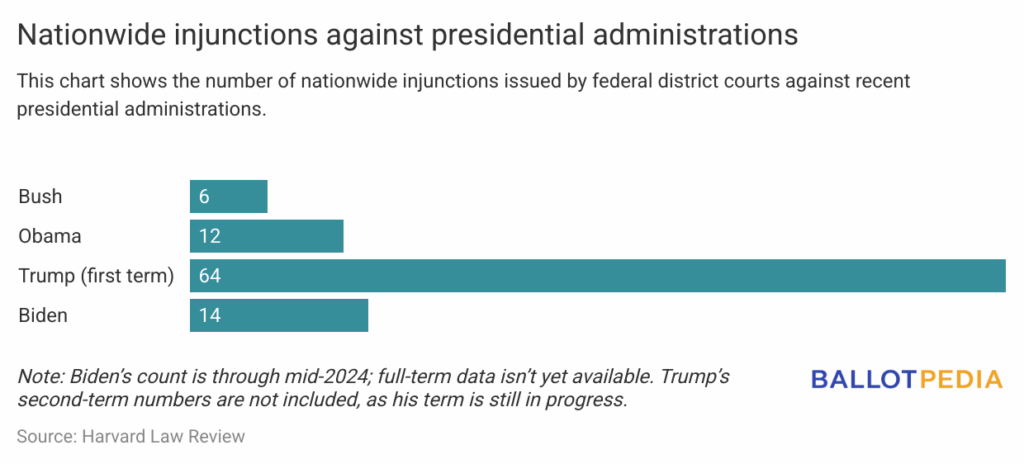The U.S. Supreme Court issued a 6–3 decision in Trump v. CASA, Inc. on June 27, holding that federal district courts exceeded their authority by issuing universal injunctions—orders that block a federal policy nationwide, not just for the parties in the case. The Court did not decide the constitutionality of the underlying executive order concerning birthright citizenship.
Background
President Trump’s Executive Order 14160 instructed federal agencies not to recognize U.S. birthright citizenship for certain children born to non-citizen parents who were either unlawfully present or on temporary visas. Multiple district courts issued nationwide injunctions halting enforcement of the order. The federal government appealed, arguing that relief should be limited to the plaintiffs. The Supreme Court consolidated the cases under Trump v. CASA, Inc.
Opinion of the Court
In a majority opinion written by Justice Amy Coney Barrett, the Court said that federal courts must stay within the bounds of traditional equitable relief authorized by the Judiciary Act of 1789. “When a court concludes that the Executive Branch has acted unlawfully,” she wrote, “the answer is not for the court to exceed its power, too.”
The Court ruled that the injunctions should be limited to the specific individuals and organizations who brought the lawsuits. It also delayed the effect of the injunctions for 30 days, giving the federal government time to prepare for enforcement of Executive Order 14160 as applied to non-plaintiffs.
Three concurring opinions supported this narrower approach:
- Justice Clarence Thomas, joined by Justice Neil Gorsuch, reiterated his longstanding skepticism toward universal injunctions.
- Justice Samuel Alito, joined by Thomas, emphasized separation-of-powers concerns.
- Justice Brett Kavanaugh filed a solo concurrence highlighting historical practice and judicial modesty.
Dissenting Opinions
Justice Sonia Sotomayor, joined by Justices Elena Kagan and Ketanji Brown Jackson, dissented. “No right is safe in the new legal regime the Court creates,” Sotomayor wrote. “Today, the threat is to birthright citizenship. Tomorrow, a different administration may try to seize firearms from law-abiding citizens or prevent people of certain faiths from gathering to worship.”
Justice Jackson filed a separate dissent, writing, “The Court’s decision to permit the Executive to violate the Constitution with respect to anyone who has not yet sued is an existential threat to the rule of law.”
Impact
The decision narrows the availability of nationwide injunctions. Going forward, federal district courts may grant relief only to the parties named in the lawsuit, unless broader coverage is legally necessary to protect the plaintiffs’ rights—such as in class actions.
This change reduces the power of individual federal judges to block federal policies across the country. It reshapes how states, advocacy organizations, and individuals can challenge executive actions—especially when multiple jurisdictions are affected.
Nonparties—those not named in the suit or formally joined to it—will no longer benefit automatically from court orders striking down federal policies, making it harder to halt broad executive actions through a single case.
What are the arguments?
During recent presidential administrations, federal courts have increasingly used nationwide injunctions to block major policies, including DACA, the Trump-era travel ban, and COVID-19 mandates.

Critics argue that nationwide injunctions exceed a district court judge's authority and inappropriately encourage a practice called venue shopping or judge shopping, where plaintiffs try to stop federal programs or laws nationwide by seeking out sympathetic judges often appointed by a president of the political party opposed to the targeted policy. Supporters say they are necessary to prevent widespread constitutional violations and ensure uniform legal protections.
Additional reading:


